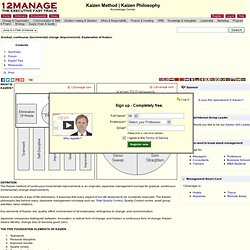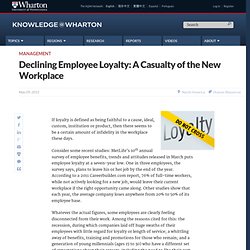

Manipulation Agressivité Passivité. Vous avez parfaitement conscience que votre comportement, parfois, ne va pas.

Il génère plus de conflit alors que vous souhaitez au contraire les régler au plus vite. Regardons de plus près si vous vous reconnaissez dans l'un des trois comportements, ou peut-être aussi dans les trois à tour de rôle : Comportement n°1 : l’agressivité Vous avez tendance à vous énerver. Croyant crever l’abcès, vous jouez l’attaque et la provocation. Comportement n°2 : la passivité En cas de problème relationnel, vous avez tendance à ne rien dire. Comportement n°3 : la manipulation Vous avez tendance à cacher les problèmes voire à mentir. Si ces brefs descriptifs vous parlent, l’Assertivité peut vous permettre de faire baisser énormément vos niveaux d’agressivité, de passivité et de manipulation.
En savoir plus sur la pédagogie du stage En savoir plus sur l’assertivité En savoir plus sur le programme.
How music's 120/80 principle can improve your next speech. Speech is a performance.

There are many similarities between music performance and public speaking. Many elements of the musician's mindset, attitude, and preparation for a performance apply to any presentation, any audience, and any circumstance. In the music world, we use the 120/80 principle when preparing for a performance. That means if I prepare 120 percent of what I want to accomplish on the stage, the outcome will be about 80 percent of what was expected. During the live presentation, a number of things could happen: Issues with the microphone Forgetting a line Unexpected audience response Unexpected distraction(s) Just ask any presenter or performer after the presentation whether they achieved 100 percent of their performance goal.
In terms of piano practice and performance, there is no such thing as "over-rehearsing. " Sometimes you have to put yourself in a physical location where no interruption will happen. However, most of the time, we are not that fortunate. Kaizen Philosophy. What is Kaizen?

Definition The Kaizen method of continuous incremental improvements is an originally Japanese management concept for gradual, continuous (incremental) change (improvement). Kaizen is actually a way of life philosophy. It assumes that every aspect of our life deserves to be constantly improved. The Kaizen philosophy lies behind many Japanese management concepts such as: Total Quality Control, Quality Control circles, small group activities, labor relations. La fixation des objectifs SMART - capitalrh.fr. Fixer des objectifs SMART ou des objectifs MALIN UN OBJECTIF SMART EST : * Spécifique (dans le sens personnalisé) * Mesurable (quels indicateurs ?)

* Ambitieux (Si nous avons fait 100 en n-1 et à marché ISO, un nouvel objectif 100 démontre un manque d'ambition) * Réaliste (dans le sens accessible : Pouvons-nous l'atteindre ?) * Délimité dans le Temps (Combien de temps pour atteindre l'objectif, quels paliers intermédiaires (x en mars puis x en juin pour atteindre l'objectif en octobre)[ La négociation des objectifs "Le management par les objectifs" suppose que l'objectif soit négociable. L'implication des collaborateurs dans la définition des objectifs Le capital humain contribue aux résultats.
Declining Employee Loyalty: A Casualty of the New Workplace. If loyalty is defined as being faithful to a cause, ideal, custom, institution or product, then there seems to be a certain amount of infidelity in the workplace these days.

Consider some recent studies: MetLife’s 10th annual survey of employee benefits, trends and attitudes released in March puts employee loyalty at a seven-year low. One in three employees, the survey says, plans to leave his or her job by the end of the year. According to a 2011 Careerbuilder.com report, 76% of full-time workers, while not actively looking for a new job, would leave their current workplace if the right opportunity came along.
Other studies show that each year, the average company loses anywhere from 20% to 50% of its employee base. Whatever the actual figures, some employees are clearly feeling disconnected from their work. Wharton management professor Adam Cobb sees another reason for what is clearly an evolving relationship. Loyalty to Individuals, Not the Company Finding that Silver Bullet.